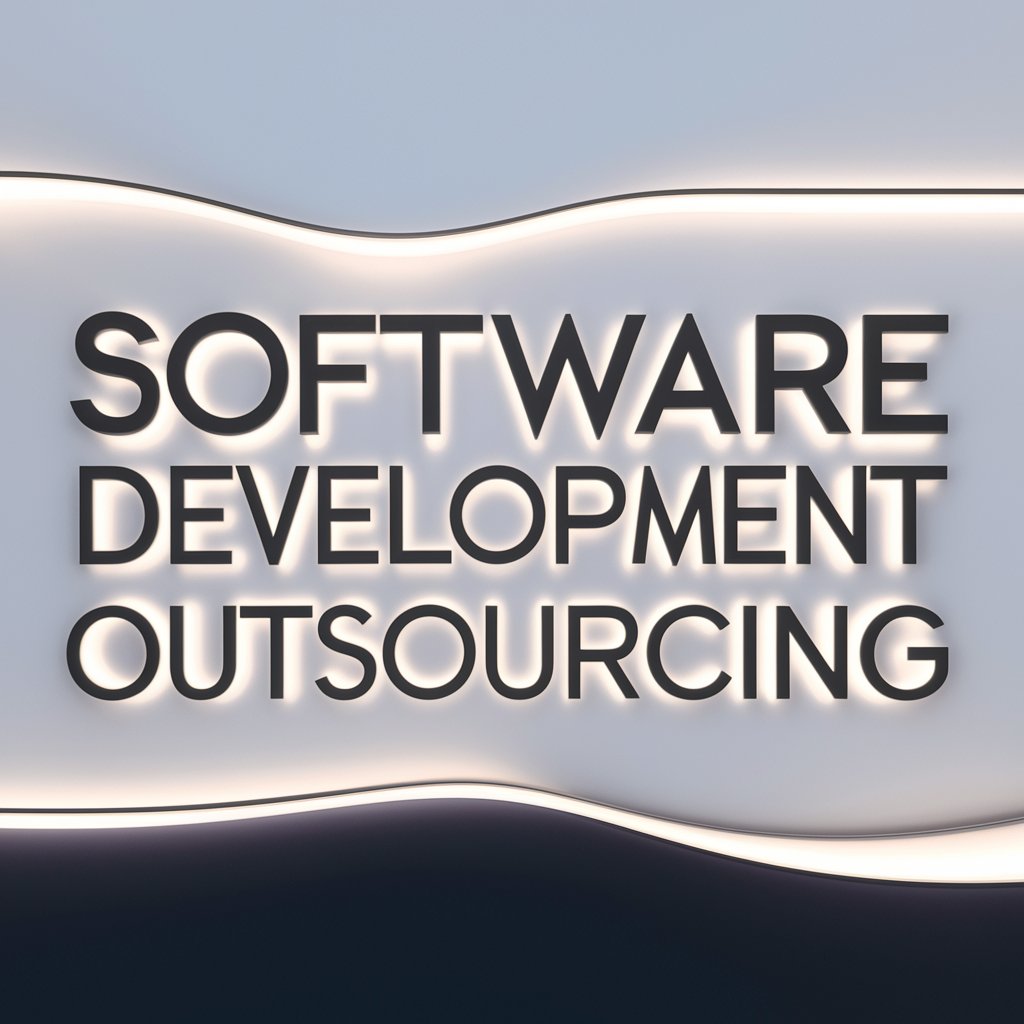In the fast-paced world of software development, staying ahead of technological trends and utilizing cutting-edge tools is essential for maintaining a competitive edge. Outsourcing software development offers companies the ability to leverage advanced technologies, specialized expertise, and innovative solutions. This article delves into the latest trends, tools, and technologies shaping software development outsourcing in 2024, providing insights on how to integrate these advancements effectively into your business strategy.
Top Technologies Used in Software Development Outsourcing
In software development outsourcing, leading technologies play a significant role in delivering superior and innovative solutions. Some of the top technologies leveraged by outsourcing companies to meet diverse business needs include:
- Cloud computing services
- Mobile app development
- Blockchain
- Artificial intelligence
These technologies enable businesses to adopt advanced solutions that drive efficiency and innovation.
Cloud platforms such as AWS, Azure, and Google Cloud provide scalable and secure environments for the development and deployment of software applications. Frameworks like React Native, Xamarin, and Swift in mobile app development enable the creation of high-performing mobile applications. Blockchain and AI technologies bolster security and facilitate the development of state-of-the-art applications.
Cloud Computing Services
Cloud platforms like AWS, Azure, and Google Cloud are essential for fast-paced and protected business operations. These platforms provide scalable and secure environments for hosting and managing software applications, allowing businesses to scale their IT resources up and down based on demand. BairesDev, for instance, specializes in AWS, Microsoft Azure, and Google Cloud, among other technologies, to deliver robust cloud computing solutions.
Cloud computing service models, including Software-as-a-Service (SaaS), Infrastructure-as-a-Service (IaaS), and Platform-as-a-Service (PaaS), offer flexible and efficient resource management. By leveraging these services, businesses can reduce infrastructure costs, enhance data security, and improve overall operational efficiency.
Cloud outsourcing ensures that companies can quickly adapt to changing market demands and maintain a competitive edge.
Mobile App Development
Mobile app development is a critical area in the field of software development outsourcing. Popular frameworks for mobile app development include:
- React Native: enables developers to build mobile apps using JavaScript and React, providing a near-native experience.
- Xamarin: allows developers to create high-performance mobile applications using C# and .NET.
- Swift: a programming language developed by Apple for iOS app development.
These frameworks provide developers with the tools and resources to create high-quality mobile applications that cater to diverse business needs.
Xamarin, backed by Microsoft, uses C# for cross-platform mobile app development, ensuring that apps perform well on both iOS and Android platforms. Swift, developed by Apple, is a powerful and intuitive programming language for iOS and macOS app development, offering robust performance and security features.
By leveraging these frameworks, businesses can deliver high-quality mobile apps that enhance user engagement and drive growth.
Blockchain and AI
Blockchain and AI technologies are revolutionizing the software development landscape by enabling secure, decentralized applications and innovative business processes. Blockchain technology uses distributed ledger systems to ensure transparency, security, and scalability in various applications. This technology is increasingly being adopted in outsourced software development for its robust security features and potential to streamline complex processes.
AI and machine learning are also gaining traction, helping businesses automate and innovate their operations. Integrating AI into software development processes allows companies to leverage advanced algorithms for data analysis, decision-making, and predictive analytics. Natural Language Processing (NLP), a subset of AI, enables computers to understand and interpret human language, opening up new possibilities for customer interaction and service automation. By incorporating these technologies, outsourcing partners can deliver cutting-edge solutions that drive business growth.
Common Challenges and Solutions in Software Development Outsourcing
Cultural Differences
Comprehending cultural differences is key to surmounting communication barriers and nurturing a cohesive work environment. Actions such as understanding the holidays and work habits of the outsourced team and creating a guide to diverse cultures can promote cooperation and understanding. Conducting cross-cultural training helps teams communicate and collaborate more effectively by understanding diverse work styles and expectations.
By fostering an environment of mutual respect and understanding, businesses can mitigate the impact of cultural differences and enhance collaboration. This approach not only improves team dynamics but also ensures that the project progresses smoothly and meets the desired outcomes.
Time Zone Management
Coordination and scheduling challenges may occur because of differing working hours between in-house and offshore development teams, leading to delays and miscommunication.
To overcome these challenges, you can:
- Use shared calendars to keep track of everyone’s availability and schedule meetings accordingly
- Utilize video conferences to facilitate real-time communication and collaboration
- Make use of tools like World Clock Meeting Planner and World Time Buddy to find convenient meeting times for all team members across different time zones.
By implementing these strategies, you can ensure seamless collaboration and effective communication between your in-house and offshore development teams.
Managing different time zones requires:
- Setting up overlapping working hours to ensure real-time communication
- Flexible work arrangements and shift management to align working hours between in-house and offshore teams
- Being cognizant of local holidays and professional standards in different cultures to facilitate smoother work relationships and enhance project efficiency.
Quality Assurance
Comprehending a vendor’s approach to quality control and problem-solving is critical for ensuring security and compliance. Regular and effective communication is crucial for keeping projects on track and maintaining quality standards. Having an in-house QA team or expert to regularly review and test the outsourced work helps maintain quality standards. Implementing strong software testing practices can also be important for identifying and addressing any issues early in the development process. This way businesses can reduce the risk of defects and improve the overall quality of the final product.
Rigorous testing and thorough vetting processes ensure high-quality standards in outsourced projects. By prioritizing quality assurance, businesses can ensure that the software developed meets the required standards and delivers the desired outcomes. This approach helps build trust and reliability in the outsourcing relationship.
Successful Case Studies of Outsourced Software Projects
Showcasing successful case studies highlights the tangible benefits and effectiveness of outsourcing software development. These real-world examples demonstrate how businesses have leveraged outsourcing to achieve significant improvements in their operations and service delivery. From healthcare management systems to e-commerce platforms and financial analytics tools, these case studies provide valuable insights into the potential of outsourcing.
Healthcare Management System
A custom ehr software development company collaborated with a healthcare provider to develop a custom software solution aimed at improving patient management. This custom software solution included key features such as:
- Appointment scheduling
- Secure access to health records
- Built-in video conferencing
- Streamlined billing processes
By integrating these features into the existing EHR system, the healthcare provider was able to enhance its patient management capabilities and deliver better care.
The collaboration resulted in:
- A more efficient and effective healthcare management system
- Demonstrating the significant impact of outsourcing on the healthcare sector
- This case study highlights how custom software solutions can address specific needs and challenges, leading to improved operational efficiency and patient satisfaction.
E-Commerce Platform
An e-commerce company faced challenges with scaling its operations and realized the need for a robust web platform to handle increased traffic and transactions. The company decided to outsource web development to a specialized firm with expertise in building scalable e-commerce platforms. The outsourced team utilized agile methodologies to ensure timely delivery and adaptability throughout the project.
As a result, the company experienced a significant improvement in website performance, leading to increased customer satisfaction and sales growth. This case study underscores the importance of choosing the right outsourcing partner and the positive impact that a well-executed outsourcing project can have on business performance.
Financial Analytics Tool
A leading financial firm sought to enhance its investment strategies by adopting a new financial analytics tool. By leveraging artificial intelligence (AI) and machine learning (ML), the firm integrated these advanced technologies into its existing systems. The implementation process involved the development of algorithms capable of analyzing vast amounts of financial data in real-time.
This AI-driven approach allowed the firm to:
- Extract meaningful insights from complex datasets
- Significantly improve its investment decision-making process
- Experience increased accuracy in predicting market trends
- Identify lucrative investment opportunities.
This case study highlights the transformative potential of AI and ML in the financial sector and the value of outsourcing for implementing such advanced technologies.
Future Trends in Software Development Outsourcing
The outsourcing market is projected to expand at a compound annual growth rate (CAGR) of 8% from 2023 to 2030. Remote working is expected to continue influencing the demand for software development outsourcing, as businesses seek to leverage global talent and maintain flexibility in their operations. Outsourcing trends include using AI, blockchain, and data science services to gain competitive advantages.
The emerging trends in software development outsourcing include:
- The emergence of low-code/no-code development, which is leveling the playing field and enabling non-technical users to construct applications
- The focus on microservices architecture, which facilitates easier updates and scaling of applications without impacting the entire system
- The growth of edge computing, which processes data closer to the creation point, reducing latency and bandwidth use
These trends indicate the evolving landscape of software development outsourcing and the opportunities it presents for businesses.
Increased Use of AI and Automation
The use of Artificial Intelligence (AI) and automation in outsourcing processes is on the rise. Technologies such as Generative AI and ChatGPT are among the most frequently discussed in outsourcing. AI assists organizations in streamlining key processes and making faster, better decisions.
By integrating AI and automation into their operations, businesses can enhance efficiency, reduce costs, and improve decision-making processes. This trend is expected to continue, with more companies adopting AI-driven solutions to stay competitive and drive innovation in their industries.
Growing Demand for Cybersecurity
As the software development outsourcing market grows, the need for robust cybersecurity measures becomes increasingly vital. Projected to reach $345.4 billion by 2026, the global cybersecurity market reflects the escalating demand for advanced security solutions to safeguard outsourced software projects.
With cyberattacks becoming more creative, companies must adopt multilevel risk reduction strategies to safeguard their outsourced projects. By prioritizing cybersecurity, businesses can protect sensitive information, maintain trust with their clients, and ensure the integrity of their software solutions.
Shift Towards Agile Methodologies
There’s an increasing focus on the necessity for outsourcing companies to adopt more flexible development methodologies. Agile methodologies, in particular, have gained popularity due to their iterative approach and ability to adapt to changing requirements. By breaking down projects into smaller, manageable chunks, Agile allows for continuous feedback and improvement, ensuring that the final product meets the client’s needs.
Outsourcing partners that adopt Agile methodologies can deliver high-quality software solutions more efficiently and effectively. This approach fosters better collaboration between in-house and outsourced teams, as it promotes regular communication, transparency, and flexibility. As businesses continue to seek innovative solutions and faster time-to-market, the shift towards Agile methodologies in software development outsourcing is expected to grow.
Summary
Technologies like cloud computing, mobile app development frameworks, and blockchain and AI play a crucial role in delivering high-quality software solutions through outsourcing. Successful case studies demonstrate the tangible benefits of outsourcing, from improved healthcare management systems to robust e-commerce platforms and advanced financial analytics tools. By effectively integrating outsourced teams and addressing common challenges, businesses can maximize the advantages of outsourcing and drive their growth in 2024 and beyond.




